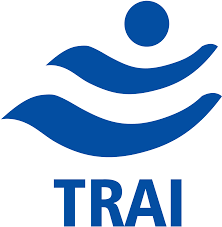TRAI Releases Punjab Mobile Network Drive Test Report: Airtel and RJIL Excel
The findings, already communicated to all telecom service providers (TSPs) operating in Punjab, provide valuable insights into the quality of both voice and data services delivered to consumers.

- Country:
- India
The Telecom Regulatory Authority of India (TRAI) has published the findings of its Independent Drive Test (IDT) conducted in the Punjab Licensed Service Area (LSA) during June 2025. The extensive drive test, overseen by the TRAI Regional Office in Delhi, aimed to evaluate real-world mobile network performance across diverse urban environments, including city routes, institutional hotspots, public transport hubs, and high-speed corridors.
Comprehensive Testing Across Punjab
Between 17th and 20th June 2025, TRAI teams executed detailed tests covering a total of 343.1 kilometers of city drive routes. The assessment also included measurements at 12 hotspot locations, a 2-kilometer walk test, and inter-operator call testing at a designated site. Technologies evaluated spanned the full spectrum of mobile services from 2G to 5G, capturing the user experience across a variety of handset types and network conditions.
The findings, already communicated to all telecom service providers (TSPs) operating in Punjab, provide valuable insights into the quality of both voice and data services delivered to consumers.
Key Voice Service Performance Metrics
TRAI’s drive test assessed multiple parameters critical to voice service quality:
-
Call Setup Success Rate (CSSR): The percentage of successfully connected calls relative to total call attempts.
-
Drop Call Rate (DCR): The rate at which active calls are unexpectedly disconnected.
-
Call Setup Time (CST): The average time taken to establish a call connection.
-
Call Silence Rate: The occurrence of silent intervals during calls.
-
Speech Quality: Measured by the Mean Opinion Score (MOS), reflecting user-perceived audio clarity.
-
Network Coverage: Availability of signal across tested areas.
Airtel and RJIL Lead in Call Setup and Call Stability
In auto-selection mode that allows handsets to switch between 5G, 4G, 3G, and 2G networks, Reliance Jio Infocomm Limited (RJIL) topped the Call Setup Success Rate chart with an impressive 99.83%, followed closely by Airtel at 99.31%. Both Vodafone Idea Limited (VIL) and Bharat Sanchar Nigam Limited (BSNL) recorded CSSRs of 98.10%.
When it comes to call stability, Airtel and VIL achieved a flawless 0.00% Drop Call Rate, indicating no unexpected call disconnections during the test period. RJIL followed with a low DCR of 0.17%, while BSNL registered a comparatively higher 3.51%.
These statistics highlight Airtel’s and RJIL’s consistent ability to maintain call connectivity and quality, essential for ensuring reliable voice communication in Punjab.
Data Service Quality Parameters
The IDT also evaluated key data metrics, including download and upload throughput speeds, latency (the delay in data transmission), jitter (variability in packet delay), packet drop rate, and video streaming delay. While specific numerical values were not detailed in the public summary, these indicators provide a comprehensive assessment of network responsiveness, reliability, and multimedia experience.
Enhancing Consumer Experience and Network Accountability
TRAI’s IDT initiative is instrumental in promoting transparency and driving telecom operators toward continual improvement. By measuring real-world performance, TRAI ensures operators remain accountable to subscribers and regulatory standards.
The Punjab report underscores the ongoing evolution of mobile networks as they transition from legacy 2G and 3G to more advanced 4G and 5G technologies. Reliable network performance across these generations is crucial to accommodating diverse user needs, ranging from basic voice calls to high-bandwidth applications like video streaming and online gaming.
Future Outlook and Industry Impact
Operators in Punjab are expected to analyze the IDT findings and address any identified shortcomings to enhance coverage, call reliability, and data speeds. Improved network performance will directly benefit consumers, businesses, and public services, fostering greater digital inclusion and economic growth.
TRAI’s continuous monitoring and publication of such reports reinforce its role as an independent regulator safeguarding the interests of Indian telecom users and encouraging competitive, high-quality service provision.










